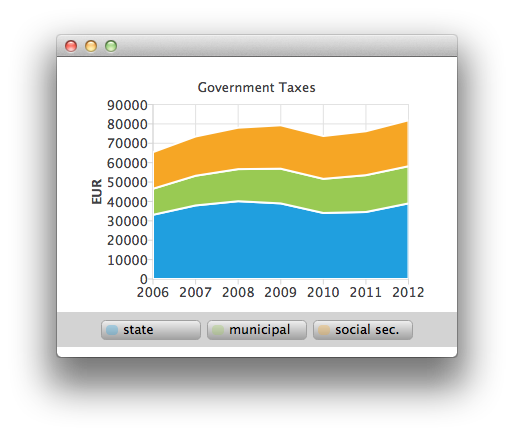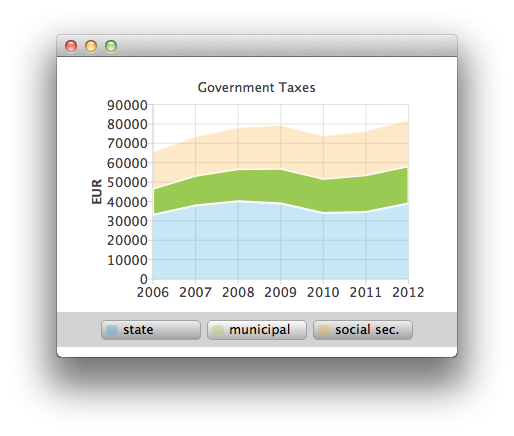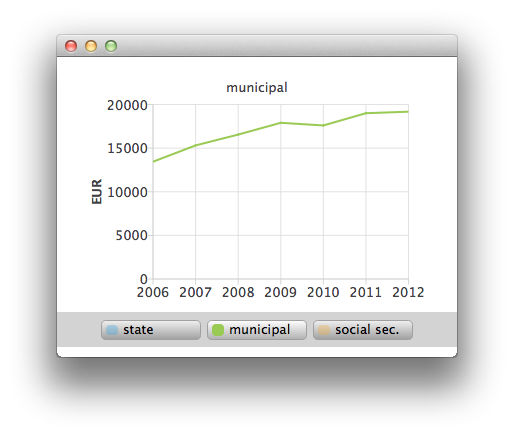Customizing Legends
Note: This is part of the Charts with QML Gallery example.
Here we show you how to create your own custom legend instead of using the built-in legend of ChartView API.
The main view of the application shows a stacked area chart. This is how one of the stacked areas is created. See ChartViewStacked.qml and AnimatedAreaSeries.qml.

AnimatedAreaSeries { id: municipalSeries name: "municipal" axisX: axisX axisY: axisY borderWidth: 0 upperSeries: LineSeries { id: municipalUpper XYPoint { x: 2006; y: 33119 + 13443 } XYPoint { x: 2007; y: 37941 + 15311 } XYPoint { x: 2008; y: 40122 + 16552 } XYPoint { x: 2009; y: 38991 + 17904 } XYPoint { x: 2010; y: 34055 + 17599 } XYPoint { x: 2011; y: 34555 + 19002 } XYPoint { x: 2012; y: 38991 + 19177 } } lowerSeries: stateUpper }
Hovering with mouse on top of the legend will highlight the hovered series. (see CustomLegend.qml).

Row { id: legendRow anchors.centerIn: parent spacing: 10 Repeater { id: legendRepeater model: legend.seriesCount delegate: legendDelegate } } Component { id: legendDelegate Rectangle { id: rect ... MouseArea { id: mouseArea anchors.fill: parent hoverEnabled: true onEntered: { rect.gradient = buttonGradientHovered; legend.entered(label.text); } onExited: { rect.gradient = buttonGradient; legend.exited(label.text); marker.opacity = 0.3; marker.height = 10; } onClicked: { legend.selected(label.text); marker.opacity = 1.0; marker.height = 12; } }
You can also select one of the stacked areas for a closer look as a line series by a mouse click (see ChartViewHighlighted.qml).

ChartView { id: chartViewHighlighted property variant selectedSeries signal clicked legend.visible: false margins.top: 10 margins.bottom: 0 antialiasing: true LineSeries { id: lineSeries axisX: ValueAxis { min: 2006 max: 2012 labelFormat: "%.0f" tickCount: 7 } axisY: ValueAxis { id: axisY titleText: "EUR" min: 0 max: 40000 labelFormat: "%.0f" tickCount: 5 } }